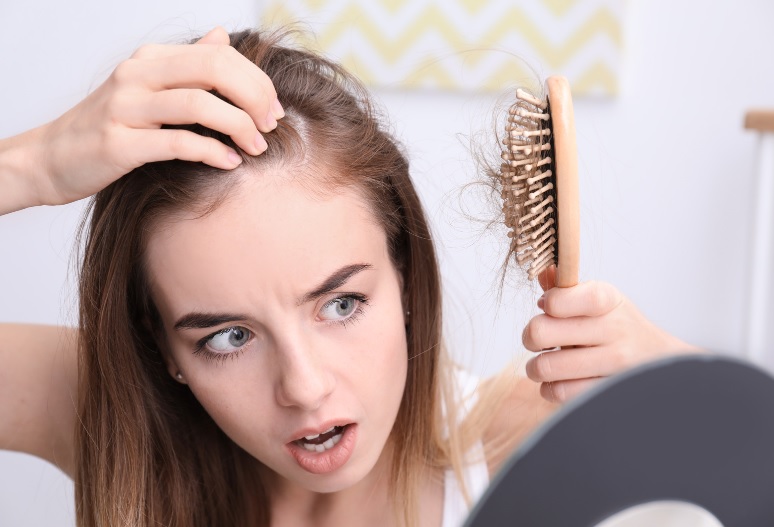
Here’s why you are more prone to hair shedding during the autumn months…
Hair loss can vary throughout the year for some people, but for the majority of hair loss sufferers, autumn can be a particularly season for losing hair. There are several reasons why you might notice increased hair loss in the autumn months.
Here are some of the most common reasons why you are shedding more hair in autun:
Seasonal Shedding
Some people experience a natural increase in hair shedding during the fall months. This phenomenon is often referred to as “seasonal shedding” or “telogen effluvium.” During the summer, your hair follicles might enter a prolonged growth phase (anagen), and then, a few months later, they enter the resting phase (telogen) and eventually shed. This can create the appearance of increased hair loss in the autumn.
Sun Exposure
During the summer, your hair is exposed to more sunlight, which can lead to damage and dryness. As the weather cools in the fall, damaged hair may become more brittle and prone to breakage, making it appear as though you are losing more hair.
Hormonal Changes
Hormonal fluctuations can play a role in hair loss. Some people may experience hormonal changes in the autumn months, which can affect the hair growth cycle. This is more common in women, especially after pregnancy or during menopause.
Stress and Lifestyle Changes
The change in seasons can sometimes bring about increased stress or lifestyle changes, such as returning to school or work after a summer break. Stress is a known factor in hair loss, so if you experience heightened stress levels in the autumn, it could contribute to hair shedding.
Diet and Nutrition
Your diet and nutritional intake can affect the health of your hair. If your eating habits change with the seasons, you may not be providing your body with the necessary nutrients for optimal hair health.
Reduced Sunlight and Vitamin D
Less exposure to sunlight in the fall can lead to lower vitamin D levels, which may indirectly affect hair health. Vitamin D is important for hair follicle function, and a deficiency could contribute to hair loss.
Changes in Hair Care Routine
Your hair care routine may change with the seasons. For example, you might use different products or styles that can affect your hair’s health. Over styling, excessive use of heating tools, or harsh hair products can contribute to hair damage and loss.
Treatment options for hair loss in autumn season
Hair loss cannot be cured, but there are a number of treatments that can help minimise hair fall, and promote healthier hair growth. There are a range of hair loss treatment options, from medications such as minoxidil, to more naturally made treatments like hair vitamins and topical serums.
There are also more advanced procedures to consider, such as hair transplantation, platelet-rich plasma (PRP), low light laser therapy (LLLT) and micro-needling techniques. Consult with your trichologist or healthcare professional to help you consider your options.
Learn more about your treatment options here.
If you’re concerned about hair loss during the autumn months, it could be worth consulting with a healthcare professional, trichologist or dermatologist. They can help determine the specific cause of your hair loss and provide appropriate treatment or recommendations to address the issue.
Additionally, maintaining a healthy lifestyle, eating a balanced diet, managing stress, and using gentle hair care practices can help promote overall hair health, regardless of the season.


Leave a Reply